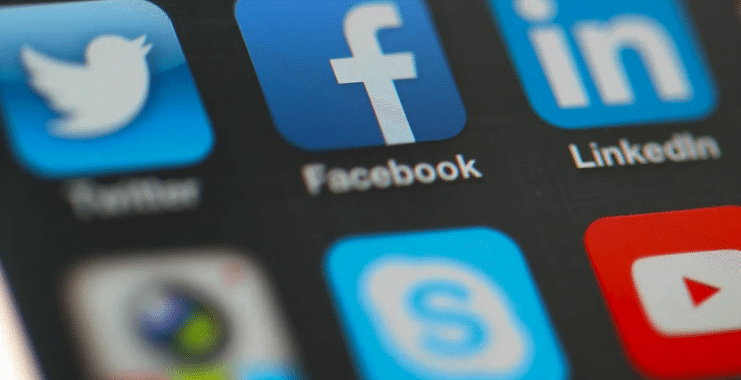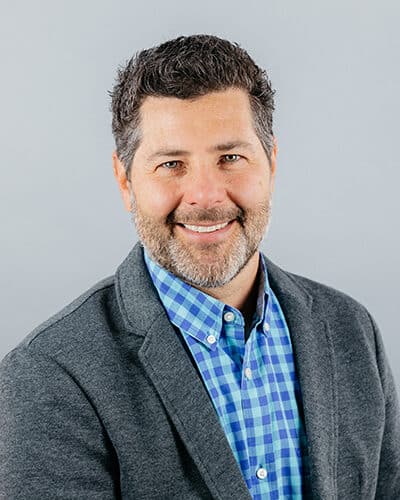Social Media Addiction Lawsuits
Plaintiffs in scores of lawsuits filed against social media platforms allege that social media addiction is responsible for harming young users. Cases involving social media addiction have become widespread. Attorneys who anticipate handling such cases need to be aware of what is involved in social media addiction cases and how to attract prospective clients.
- What Is Social Media Addiction?
- Why Are People Suing Social Media Platforms?
- What is the Current Status of Social Media Addiction Lawsuits?
- Anticipating a Wave of Social Media Mass Tort Litigation
- What Are Social Media Platforms?
- Which Social Media Platforms Are Plaintiffs Currently Suing?
- What Are the Claims Asserted by Plaintiffs in Social Media Addiction Lawsuits?
- Did Social Media Companies Know Their Products and Services Were Addictive?
- CAMG Helps Law Firms Generate Social Media Addiction Cases
A wave of recent federal lawsuits argues that social media platforms can be held legally responsible for the harm suffered by users. Most of the lawsuits focus specifically on the harms suffered by child and teen users. More than 100 cases alleging social media addiction have now been consolidated.
These lawsuits, which allege that social media platforms are defective products, involve a variety of social media services, including TikTok, Facebook, YouTube, and Snapchat. Attorneys assisting with social media addiction lawsuits may find that these cases are similar to working on other types of defective product cases or even lawsuits involving tobacco addiction.
What Is Social Media Addiction?
Social media addiction is not currently categorized as an official diagnosis. However, addiction to social media is considered to be a form of behavioral addiction and, therefore, may influence the behavior or mental health of a user in a negative manner. Amongst social media users, teens and children may be at risk of developing social media addiction as they search for their own unique form of self-identity.
Researchers at California State University state that exposure to social media in children may result in their reward centers becoming overstimulated. This can result in an increased reward responsiveness, which may create problems.
Why Are People Suing Social Media Platforms?
Plaintiffs in current lawsuits involving social media addiction allege that excessive amounts of exposure to social media platforms have resulted in both suicide attempts and suicides, as well as other forms of harm, including:
Cyberbullying: Young users may have a tendency to act in an impulsive manner regarding what they share on social media. This could leave them vulnerable to harassment, bullying, and blackmail, which could result in low self-esteem and anxiety and even place them at risk for self-harm.
Comparisons: Teens and children using social media may compare themselves to the people they follow on social media platforms. Users may be at risk of defining the quality of their own lives or even their self-worth according to what appears in their social media feeds.
Fear of Missing Out: Children and teens may experience a compulsion to constantly check their phones for fear that they could miss out on something important. This can lead to reduced focus and increased anxiety.
What is the Current Status of Social Media Addiction Lawsuits?
On January 2, 2023, the US Judicial Panel on Multidistrict Litigation ruled that all pending social media addiction lawsuits will be consolidated. Currently, there are dozens of pending cases in federal courts. While Meta is a plaintiff in 70 percent of such cases, the lawsuit will include cases from other social media platforms. The US Judicial Panel stated that though the cases involve multiple social media services, they will be centralized because the type of alleged harm in the cases is similar. As of October 16, 2023, there were 429 cases pending in the MDL.
An increasing number of social media addiction lawsuits are now being filed in courts across the country by users and their parents. These lawsuits are brought by individuals and their guardians who allege that teens and children have experienced harm as a result of their use of a social media platform.
In addition to the scores of lawsuits that have been recently consolidated in an MDL, the Seattle School District has also launched a lawsuit against technology companies. This lawsuit alleges that the companies have created what is termed a “youth mental health crisis.”
Multistate Lawsuit Against Meta
On October 24, 2023, 33 state attorneys general filed a federal lawsuit against Meta for what they deem Meta’s “scheme to exploit young users for profit” on its Facebook and Instagram platforms. The AP News reported that the lawsuit is the result of an investigation that was initiated by a bipartisan coalition of attorneys general from the following states:
- California
- Florida
- Kentucky
- Massachusetts
- Nebraska
- New Jersey
- Tennessee
- Vermont
According to the lawsuit, Meta knew its products caused physical harm and addiction in young users, but instead of taking steps to protect them, it blatantly turned a blind eye to the harm and continued to take advantage of young users’ psychological vulnerabilities.
The lawsuit was filed in the Northern District of California. Nine other states have also filed lawsuits in their respective state courts, resulting in a total of 42 states having filed lawsuits against Meta. The grounds are that Meta engaged in deceptive, unfair, and unconscionable acts and practices that harmed young users.
Deceptive Acts and Practices
The plaintiffs allege that Meta knowingly made the following misrepresentations about Facebook and Instagram:
- The products are not harmful to young users and are not designed to promote problematic use, when in fact, Meta knew the opposite to be true.
- Meta prioritized user health and safety over profits when, in fact, Meta prioritized maximized profits through prolonged use of its platforms to the detriment of young users.
- Meta prevented users under 13 from using its platforms, yet such users are prevalent on both of its platforms without parental consent, and with Meta’s full knowledge.
- Meta’s collection of personal data was not for the purpose of causing users to become addicted to their platforms when, in fact, that was one of the purposes.
These are just a few of the deceptive acts and practices alleged in the first 835 paragraphs of the lawsuit.
Unfair And Unconscionable Acts And Practices
The plaintiffs allege that Meta engaged in unfair and/or unconscionable acts and practices, which include the following:
- Knowingly designing its platforms to be psychologically and physically harmful to young users while also targeting young users
- Including features designed to promote prolonged, compulsive use of social media by including such features as infinite scroll, autoplay, disruptive alerts, and a display of “likes”
- Designing and deploying an algorithm that exploited young users’ psychological vulnerabilities and cultivated a “fear of missing out” to increase use
- Strategically using “variable reinforcement schedules” to increase dopamine release and manipulate young users to continuously engage in their platforms
- Violating COPPA by collecting the personal information of users who were under the age of 13 without parental consent
Consolidated Cases in California
In 2022, 350 individual cases and 250 cases brought by school districts were consolidated and transferred to the Superior Court of Los Angeles County, with the Honorable Judge Carolyn Kuhl presiding. The defendants in these cases are as follows:
- Meta
- Snap, Inc., the owner of Snapchat
- ByteDance, the owner of TikTok
- Google, the owner of YouTube
On October 13, 2023, Judge Kuhl issued an 89-page ruling allowing the litigation to continue. These rulings could influence cases nationwide.
- Social media platforms do not qualify as products for the purpose of products liability litigation. Instead, the court ruled that liability should be determined based on the defendant’s course of conduct.
- Section 230 does not bar a claim of negligence against social media platforms when the claim relates to the defendants’ conduct.
The ruling about Section 230 removes a significant legal hurdle for plaintiffs. According to Judge Kuhl, Section 230 should not be stretched beyond its original intent, which was to maximize user control over the content they receive and remove disincentives against social media companies creating parental controls and other filtering software.
Thus, Judge Kuhl brought out that the law was passed with the intention of making it easier for social media platforms to protect minors. Instead, they have used it to shield themselves from not only failing to provide such protections in a meaningful way but allegedly exposing children and teens to harmful content and algorithms knowingly and willingly for their own financial gain.
Anticipating a Wave of Social Media Mass Tort Litigation
Law firms representing plaintiffs who are suing social media platforms need to understand that awareness of social media addiction is increasing. Furthermore, more and more users and other interested entities are filing lawsuits to recover compensation for the harm they have suffered as a result of social media addiction. The potential exists for significant social media mass tort litigation in the near future.

What Are Social Media Platforms?
The collective term “social media” refers to applications and websites that focus on input from communities, interaction, communication, collaboration, and the sharing of content. Social media platforms may be used by individuals for the purposes of keeping in touch and interacting with communities, family, and friends. In recent years, businesses have used social media applications as a way to promote and market their products and services.
Which Social Media Platforms Are Plaintiffs Currently Suing?
Plaintiffs currently suing social media platforms for social media addiction have filed lawsuits against the following platforms:
- Meta (Facebook and Instagram)
- Snapchat
- TikTok
- Google (YouTube)
What Are the Claims Asserted by Plaintiffs in Social Media Addiction Lawsuits?
Lawsuits against social media companies often focus on the defective design nature of social media platforms, which fails to warn users that the applications are specifically designed to be addictive.
Symptoms and side effects of social media addiction in teens and children may include:
- Body dysmorphia
- Anxiety
- Depression
- Eating disorders
- Difficulty focusing or concentrating
- Low self-esteem
- Difficulty sleeping or insomnia
- Injuries or death stemming from social media challenges
- Sexual exploitation
- Self-harm
- Thoughts or attempts of suicide
- Suicide
Even more disturbing is the way in which many of these symptoms and side effects are co-related, which may place teens and children at an increased risk of developing multiple potentially serious problems.
Some firms are accepting cases for claimants who we able to purchase drugs via social media messaging platforms like Snapchat. On many occasions, these drugs are laced with fentanyl and are leading to overdose deaths.
Did Social Media Companies Know Their Products and Services Were Addictive?
Whether or not social media companies knew their products and services were addictive is still in question. If social media companies were aware of the potential for their products and services to be addictive, they could be held liable to the individuals who used their services and experienced harm as a result. Section 230 currently serves as a shield for technology companies to protect themselves from content shared via their platforms.
In 2021, a former employee of Meta, Frances Haugen, testified before the U.S. Senate, stating that leadership at Facebook had made choices that led to harm to children. According to Haugen, Meta cherry-picks the information users encounter, which allows it to control the thoughts, behaviors, and feelings of users and shape user perception of reality. Haugen further testified that Meta’s own internal research has confirmed on a repeated basis that the content cultivated by the company’s platform results in self-hate and self-harm.
Currently, more than 40 percent of Instagram users in the United States are under the age of 23. Each day, approximately 22 million teenage users in the United States log in to Instagram. Compared to other social media platforms, Instagram has been associated with the most severe mental health and addiction risks.
CAMG Helps Law Firms Generate Social Media Addiction Cases
A variety of marketing strategies and tools are available to personal injury law firms to assist in attracting prospective plaintiffs for social media addiction lawsuits. Potential media outlets include paid search, television advertisements, and paid social media ads. The utilization of search engine optimization (SEO) can also drive qualified claimants.
CAMG is a marketing firm specifically focused on serving law firms. We work to assist your firm in establishing and running mass tort campaigns. Our team has the knowledge, expertise, and resources to customize marketing strategies to help your law firm acquire social media addiction cases.
You can count on our team to work diligently and efficiently to craft strategic mass tort campaign marketing efforts to attract prospective clients. This allows your firm to focus its time, resources, and energy on obtaining compensation for your clients.
If your law firm is interested in social media addiction cases, please contact us today.

Is your firm in the Top 3 of Google Search?

CAMG Ethics White Paper
Legal Areas
Are you looking for data-driven marketing for your law firm?
I have worked with CAMG for years. Not only are they great at delivering, but they are great people to work with!

CAMG is always accommodating and willing to work in a way that supports your office as an extension of your team.

Steve Nober and the team at CAMG are responsive, ethical, talented, reasonably priced, and easy to work with!

If you are looking for professional, hardworking people who produce great results and then take you out for a nice dinner, look no further than CAMG


THE NATION’S LARGEST FULLY INTEGRATED
Marketing Agency Dedicated to Law Firms
- Television
- Radio
- Public Relations
- Medical Record Retrieval & Review
- Search Engine Optimization
- Paid Digital
- Out of Home
- Intake & Contracting Services
